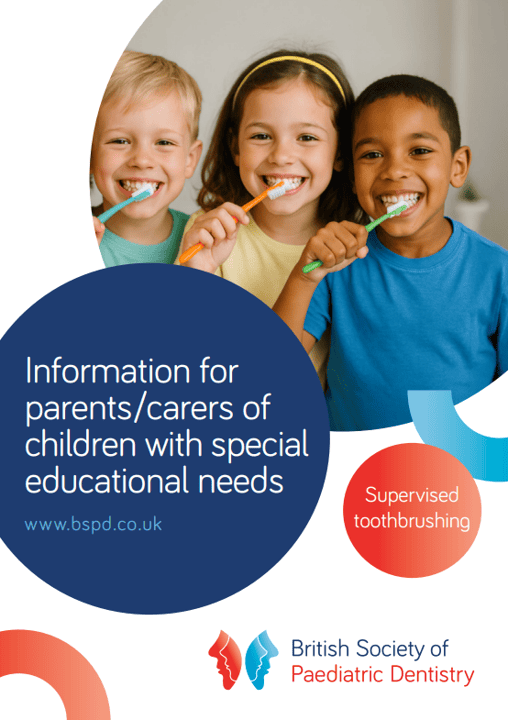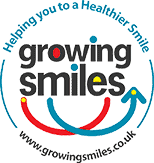* We are working on the time line pages.. slowly! Have a look here in the meantime. Please call back or contact us if you need something you can’t find info@growingsmiles.co.uk
Most Common Diseases & Conditions:
Tooth decay (dental caries)
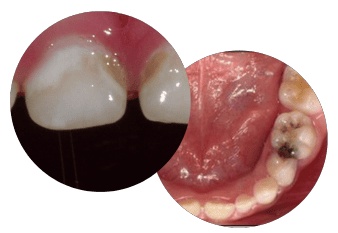
Tooth wear (erosion, attrition)
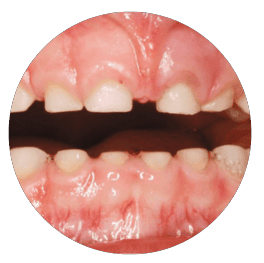
Major Risk Factors Which Contribute to Problems:
- Diet – sugar containing foods and drinks
- Little or no fluoride around teeth
- Poor oral hygiene
Everyone in this Age Group Should Aim for:
- Eat a healthy diet
- Adults brush children’s teeth
- Use fluoride toothpaste
- Spit out after brushing but don’t rinse
- Regular dental care
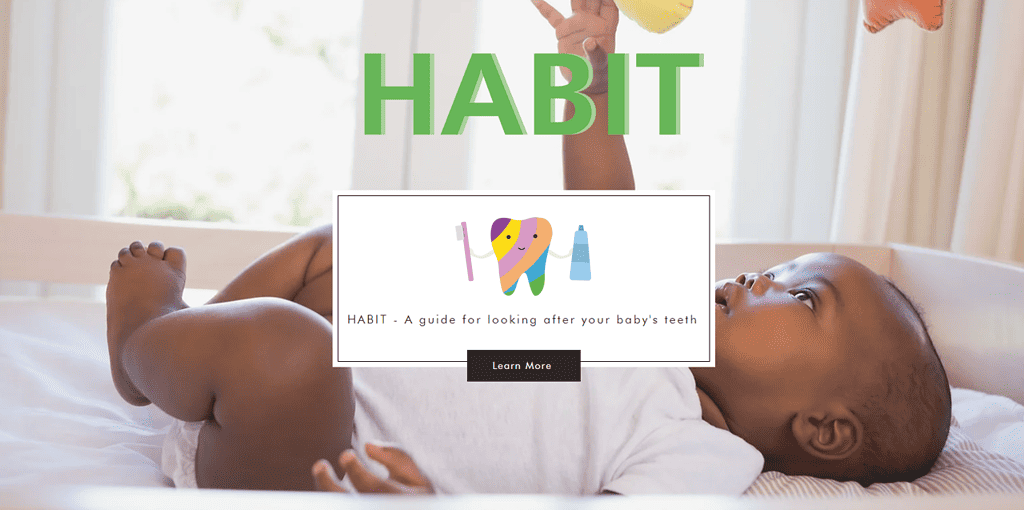
The University of Leeds Dental School has a great website supporting healthy habits for life. It aims to help every child grow up free from tooth decay. Have a look – lots of great advice, videos and links.
Inside the mouth – Baby Teeth Matter – they aren’t all replaced until around 12 years Baby teeth act as a guide for the permanent teeth erupting into the correct position. If baby teeth are lost or removed early before the permanent tooth is ready to erupt the permanent tooth may not erupt correctly. First permanent teeth – when they erupt and where to look for them. Variations in eruption, shape, size and colour. Tooth decay – how to spot early signs by lifting the lip and looking inside. Developmental anomalies and poorly mineralised (formed/calcified) teeth.
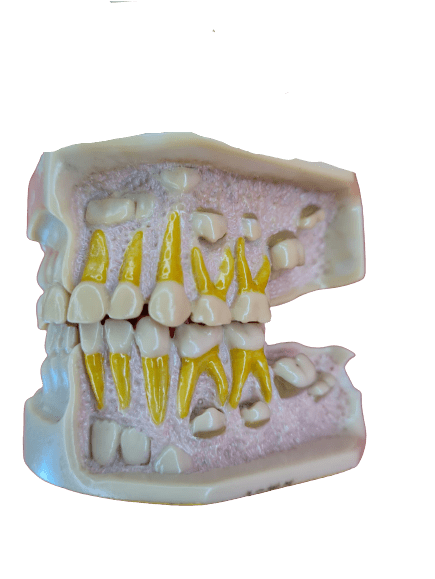
Baby Teeth Matter! All the baby teeth have usually erupted into the mouth by 3 years. The first permanent teeth arrive in the mouth around 6 years but look out – it is usually the first permanent molar which arrives BEHIND all the baby teeth. These are easy to miss if you don’t know to look for them. The incisors are replaced by permanent teeth fro around 6 years but not all the baby teeth are replaced until around 12 years of age. The baby molars – often the ones where cavities develop are some of the last baby teeth to be replaced by permanent teeth.
The first permanent teeth to erupt are usually the first molars. They arrive behind all the baby teeth – one in each corner of the mouth. They are often mistaken for another baby molar and are easily forgotten when cleaning. Little ones don’t have the ability to clean teeth thoroughly until they are around 8 years old – so keep helping them. Make sure you are cleaning those new teeth – they have to last a lifetime!
The lower incisors start to wobble around the same time. The permanent tooth pushes out the baby tooth, whose root shrinks back ready to give way to the ‘big second’ tooth. Sometimes it can appear there are two rows of teeth – don’t worry. Your child is growing and the jaw grows to accommodate these bigger teeth – even if it does all look a bit muddled for a while.
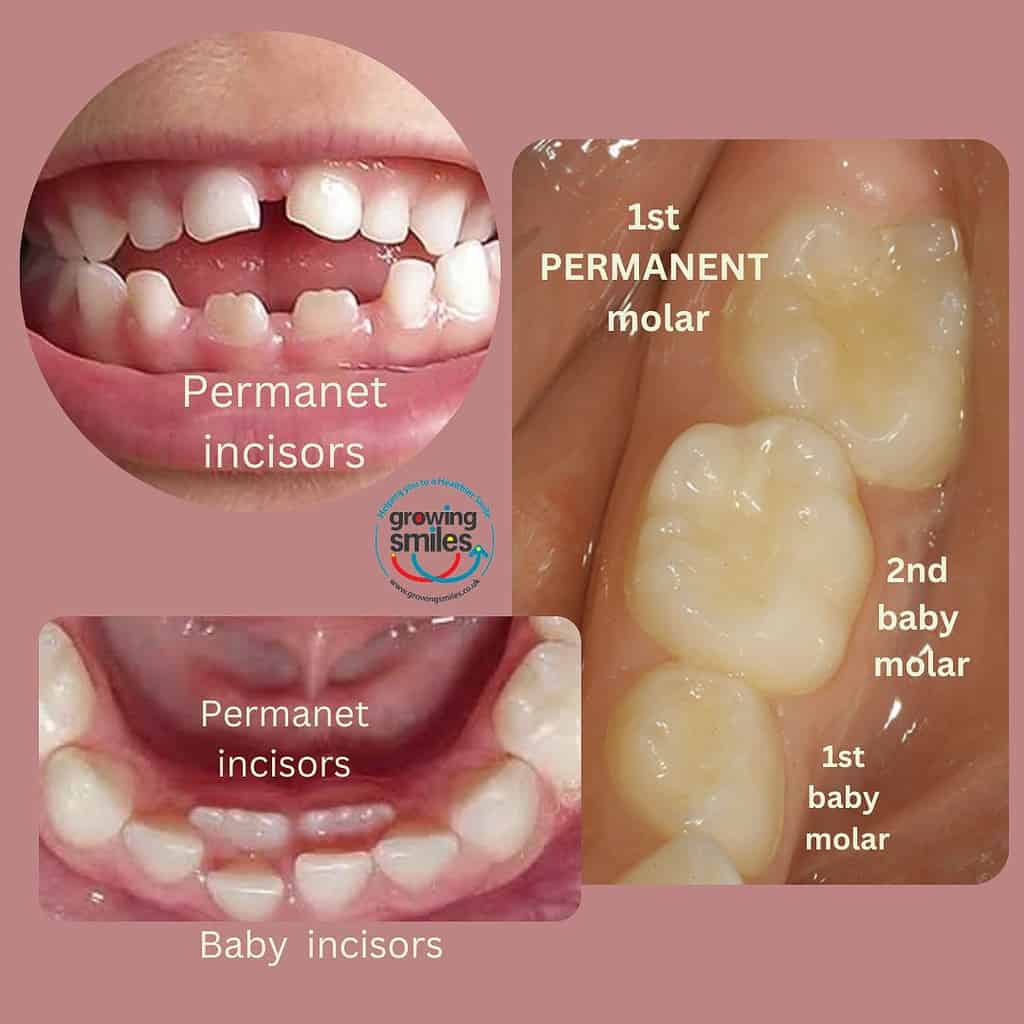
Lifestyle, Health and Wellbeing – General health. Autism and sensory issues relating to oral health. Medicines, Child care, Trauma, Grinding, Dummy/digit sucking and its impact on shape of teeth and oral health. Childcare/Grandparents.
Oral hygiene – Toothbrushing, Who, When, Where, What and How
Toothbrushing.
Establishing oral care routines – Brush last thing at night at at least one other time. Parents should brush and support toothbrushing until the age of 7-8 years. Supporting oral hygiene. What to use – toothpaste and toothbrushes. Fluoride toothpaste – recommended fluoride level for this age. How much to use – a pea sized blob. Don’t let children lick or eat toothpaste from the tube. . Flavour – mint and alternatives. Tips for brushing the teeth of a small child. When to clean teeth and why this matters. Dry toothbrushing
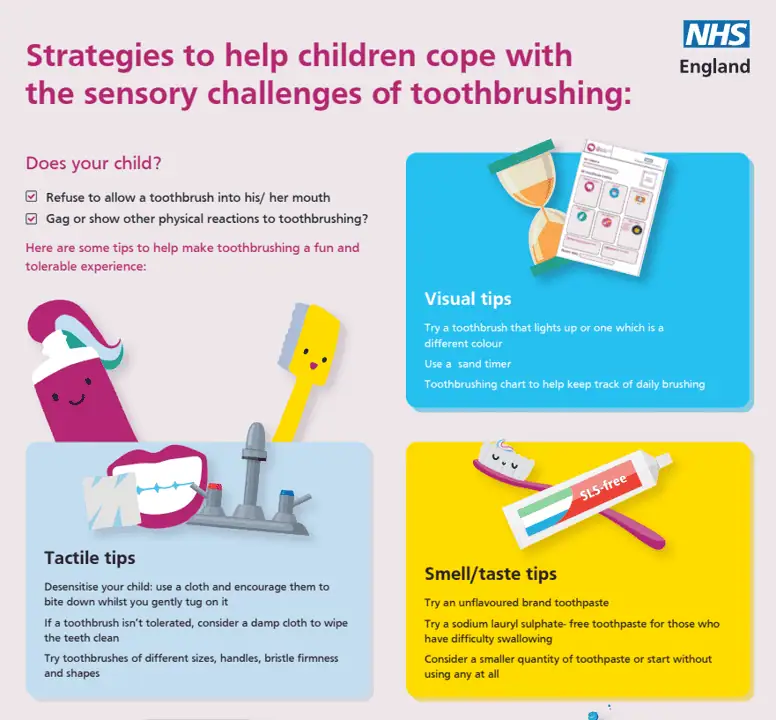
NHS England’s Mini Mouth Care Matters programmes has strategies to help children cope with the sensory challenges of toothbrushing. You can download the leaflet here.
Diet and Nutrition – Mealtimes. Snacks. Drinks. Bedtime food/drink. Sugar – free sugars, hidden sugars and what low sugar and sugar free mean. Sugar swaps. Fussy eaters. Allergies and special diets.
Professional dental care – Family dental visits. Preventive care – Fluoride and Fissure sealants. Managing anxiety with dental care.
The British Society of Paediatric Dentistry has produced guidance – Oral health advice for parents and carers of autistic children and young people which you may find helpful.
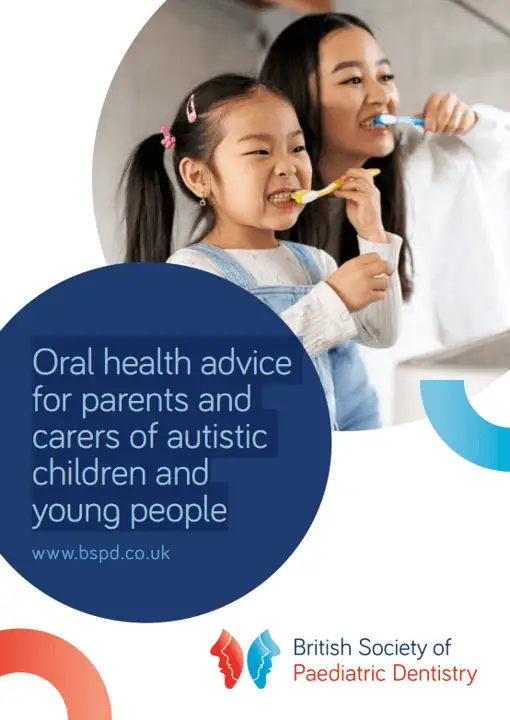
Regular dental visits build confidence and reduce anxiety.
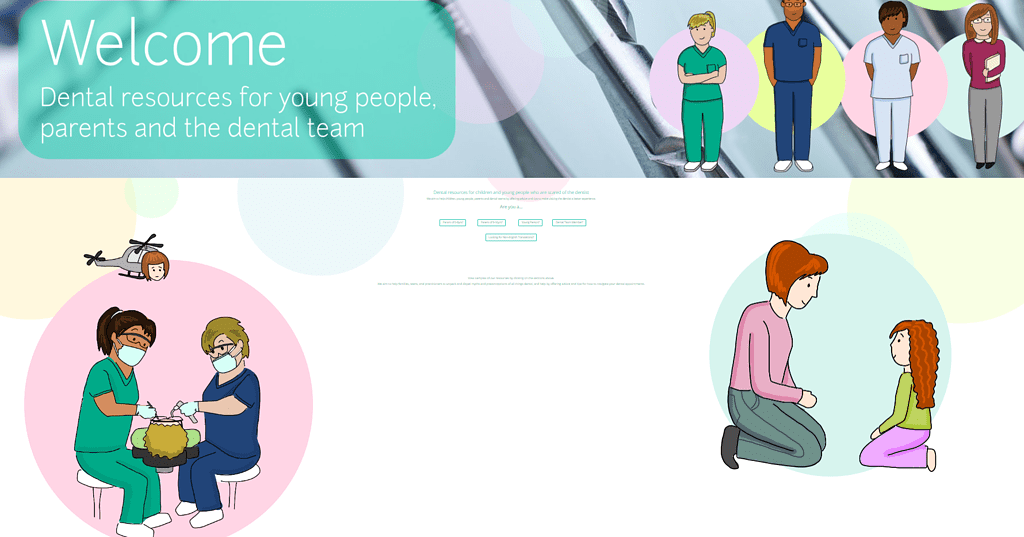
Worried about going to the dentist? We recommend visiting this website which has advise and tips to make visiting the dentist a better experience.
Some children e.g. children with autism / special educational needs (SEN) may need more help.
Visit ToothPASTE developed to support families of young autistic children care for their teeth. Created with families, professionals and researchers.
The website offers tips and advice on brushing teeth, visiting the dentist, and healthy eating and drinking for families of autistic children.
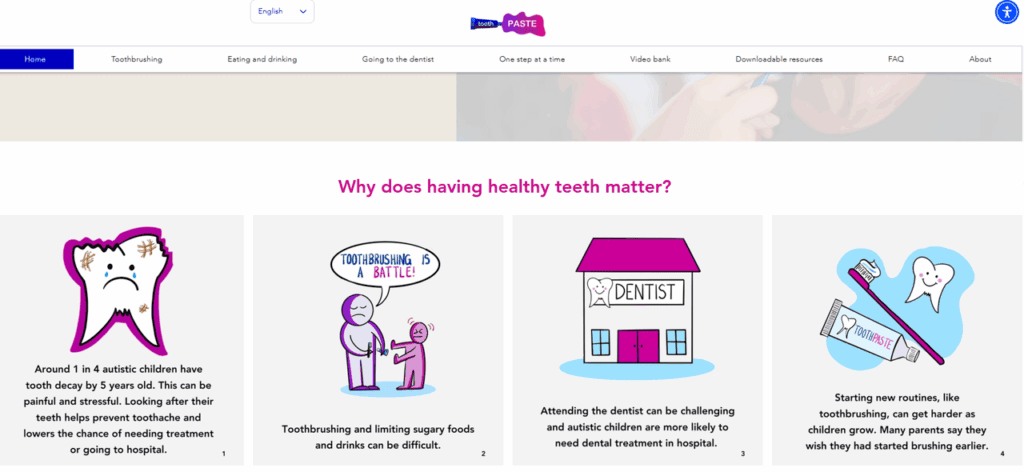
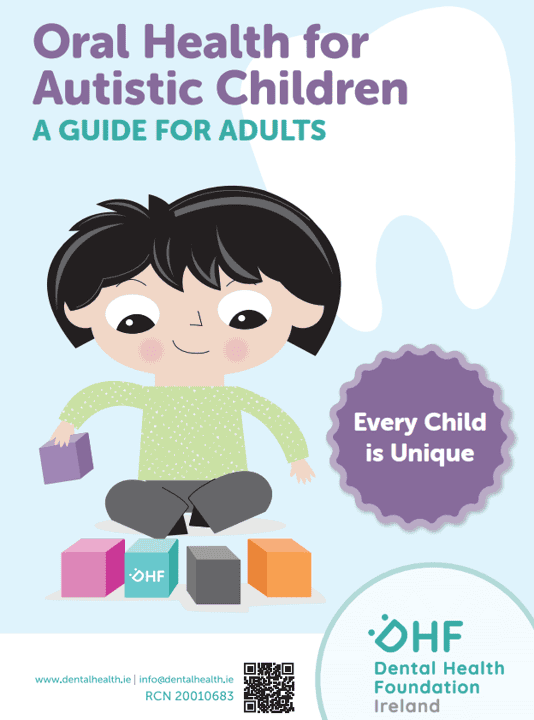
Oral Health for Autistic Children and
those with sensory processing difficulties (SPDs)
A GUIDE FOR ADULTS has been produced by the Dental Health Foundation, Ireland with lots of useful tips. The booklet is designed to support parents and carers of autistic children in promoting good oral health. It offers
practical tips to help you establish a dental care routine that
suits your child’s unique needs.
The products recommended in the guide are available on the Growing Smiles online shop.
Do you have a child with special educational needs (SEN)?
Is your school/nursery taking part in a supervised toothbrushing programme?
The British Society of Paediatric Dentistry has produced a leaflet to support parents and carers of children with special educational needs whose child is taking part in supervised toothbrushing.
